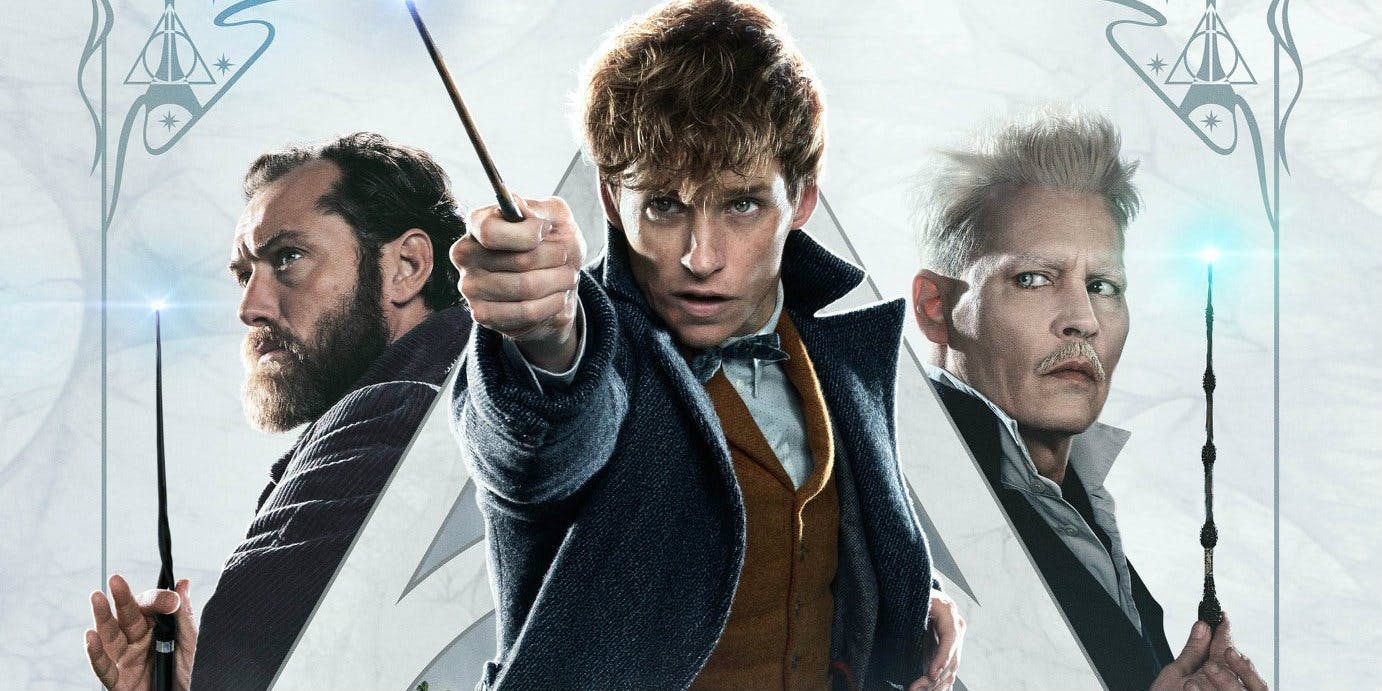Despite the very contained and definitive saga of Harry Potter (putting aside the successive stage play and novel, Harry Potter and the Cursed Child anyway), 2016’s prequel movie expansion to the so-called ‘Wizarding World’ universe, Fantastic Beasts and Where to Find Them, proved to be a surprisingly enjoyable addition to the Harry Potter movie canon. Functioning as both a prequel and a spin-off, Fantastic Beasts and Where to Find Them provided a pretty strong offshoot that moved completely away from the tale of the Boy Who Lived, instead re-focusing on a 1920’s period setting that was also built on the hunt for magical creatures that were equal parts exotic and adorable. As a questionably necessary spin-off effort, Fantastic Beasts and Where to Find Them certainly did its job well enough, providing more Harry Potter universe expansion, without needing to rely on Harry Potter himself anymore.
Given the enormously popular and enormously lucrative power of the Harry Potter brand however, or perhaps the ‘Wizarding World’ brand, as it’s now better known due to its shared movie universe aspirations, it was inevitable that Warner Bros. was never going to stop at just one successful Harry Potter spin-off. First, a Fantastic Beasts movie trilogy was commissioned to continue the adventures of new protagonist, Newt Scamander, and that eventually evolved into a five-movie plan. The second of these five planned movies, Fantastic Beasts: The Crimes of Grindelwald, thus gets to work laying the groundwork for the additional movies that Warner Bros. and Harry Potter novel author, J.K. Rowling are now bringing to life under the Fantastic Beasts label… And that’s about the long and short of it.
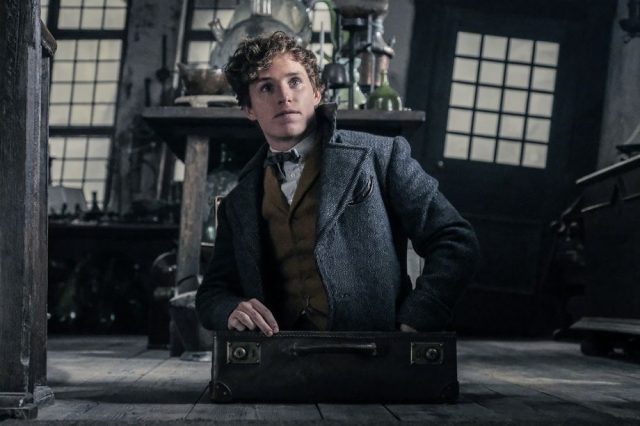
The good news regarding Fantastic Beasts: The Crimes of Grindelwald is that it’s just as impressively-produced and technically stunning as any of its ‘Wizarding World’ predecessors. It’s also packed to the gills with more tie-ins and expansions to Harry Potter lore than the first Fantastic Beasts movie had, something that I’m sure will delight quite a few Harry Potter fans. For all of the impressive polish and fan devotion however, the bad news about Fantastic Beasts: The Crimes of Grindelwald is that it may actually be the worst ‘Wizarding World’ movie that we’ve ever received to date, at least in terms of its storytelling and character arcs. This movie is a gigantic mess of teases, nods, foundations and foreshadowing, one that definitely seems more concerned with building a shared universe and its inevitable sequels, rather than actually delivering a good movie in the moment. Harry Potter fans and those who enjoyed the previous Fantastic Beasts movie will probably still be entertained during the handful of better moments in this sequel, but for anyone who’s not already heavily invested in the Wizarding World, Fantastic Beasts: The Crimes of Grindelwald may end up being too boring and aimless to truly recommend.
Fantastic Beasts: The Crimes of Grindelwald certainly starts spreading its cast and perspectives rather thin, now that its stakes aren’t contained to Newt sneaking around 1920’s New York to try and round up his misplaced magical creatures. Newt’s quirky creature-collecting quest alone was a fair enough story motivation for the first movie. In the second movie however, we now have a new villain, Grindelwald, once again played by Johnny Depp, after his surprise cameo at the end of the first movie, who has been unleashed on the Wizarding World, and Newt and co. somehow each end up having to re-team to go after Grindelwald. Obviously, the rise of Grindelwald is a big draw in this sequel, but surprisingly, Depp has far less screentime here than you would imagine. It’s painfully obvious that this movie doesn’t want to use up all of J.K. Rowling’s planned ideas for Grindelwald that are being saved for the sequels, so Grindelwald essentially shows up in the early moments for the big opener, peers out every so often in the second act, and then serves as the basis for a spectacular climax. Depp is fine and good in the part, but for now, it feels like he just isn’t given enough to work with at this point, with much of the character’s implied superhuman charisma not truly managing to fully register yet.
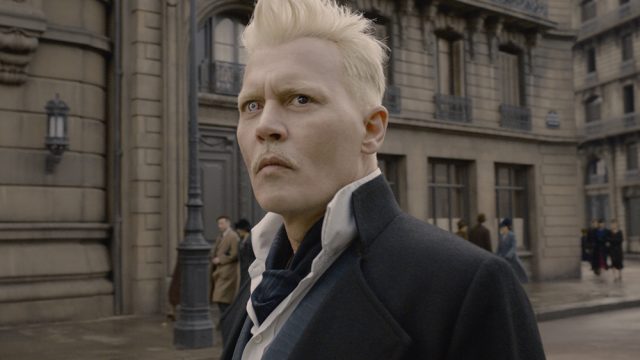
Fortunately, the lovable leads from the first movie do manage to come back, including Jacob, after his story resolution from Fantastic Beasts and Where to Find Them ends up being hastily undone. Eddie Redmayne remains a lovably eccentric goof in the lead role of Newt, and Dan Fogler remains a strong source of comic relief as everyman ‘No-Maj’, Jacob as well, especially when the stakes do manage to increase a bit for him and Queenie, now that their relationship has reached a new level. Katherine Waterston also stays true to form as the tough and determined Tina, now an Auror who is working on the front lines of the effort to apprehend the escaped Grindelwald. The former lead characters from Fantastic Beasts and Where to Find Them don’t truly feel like they evolve in any meaningful way in this sequel, beyond some of their small career shifts (there is one solid exception to this rule by the end of the movie, and I obviously won’t spoil it), but they’re still fun, likable and easy to root for, which makes some of their trite and stalled story arcs in this sequel a little bit easier to deal with.
This leads me into the many, many new characters that are introduced in Fantastic Beasts: The Crimes of Grindelwald, and among these new faces, Jude Law is easily the big standout as the younger Albus Dumbledore, the future headmaster of Hogwarts, who is currently operating as the school’s Defense Against the Dark Arts teacher. Law’s Dumbledore is slick, cool, inspiring and even kind of sexy, creating a compelling new take on the surrogate father figure to Harry Potter in the previous series of movies! Again though, there’s not nearly enough of Law in this movie, who gets to highlight a handful of key scenes, and is otherwise absent for most of the events. That’s a shame, because we end up spending a lot more time with characters like Newt’s former flame, Leta LeStrange, played by Zoe Kravitz, who is now engaged to Newt’s brother, Theseus, played by Callum Turner, and both of whom are well-performed, though they both end up being disappointingly flat, boring personalities, even when some big twists are attempted with Leta later in the movie. The same is sadly true of Nagini, played here by Claudia Kim, the future pet snake of Harry Potter villain, Voldemort, who is currently a human woman working as part of a traveling wizard circus, cursed from birth to periodically turn into a giant snake, and eventually be unable to turn back. This is an interesting idea, but it’s never actually explored, with Nagini instead simply hanging off of the arms of Ezra Miller’s Credence Barebone (yes, he’s back, for equally questionable reasons as Jacob), and not really doing much else. Hell, it feels like she barely even has any lines in this movie!
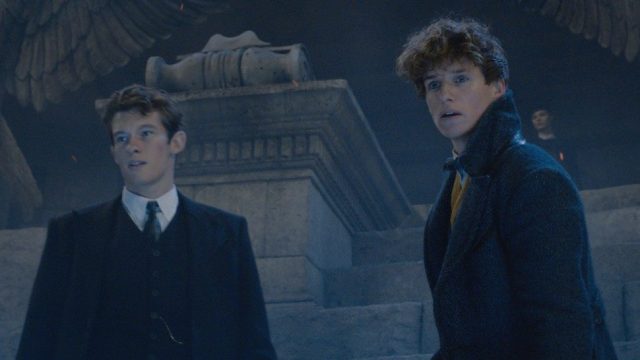
Even worse than several of the key characters in Fantastic Beasts: The Crimes of Grindelwald being boring or not fully making an impact on the audience at this point, is the fact that many of the other personalities just don’t feel like they truly matter. Certain characters show up and leave at a moment’s notice, buried under an overbearing torrent of story material that quickly overwhelms the audience’s chances to truly get to know or invest in the new personalities especially. Rowling is clearly much more interested in world building than she is personality building in this follow-up, to the point where it would be unsurprising if many viewers even ended up having trouble remembering certain characters’ names! We also remember some personalities, such as Nagini for example, simply because they call back to the Harry Potter movies, having no other personality or identifiable impact on the plot beyond that. Ultimately, the robust cast of Fantastic Beasts: The Crimes of Grindelwald becomes spread too thin, with the movie quickly failing to juggle so many rapidly shifting perspectives, locations and agendas, to the point where the movie pretty much completely lacks any real sense of focus for any of its worthwhile characters.
For all of its good intentions and high aspirations as a blockbuster follow-up, the decisive weakness that so often ruins Fantastic Beasts: The Crimes of Grindelwald is, disappointingly enough, J.K. Rowling’s own script. Rowling’s later Harry Potter books especially have seen some criticism from non-fans for being overlong and under-edited, since publishers clearly started becoming afraid to begin interfering with Rowling’s ideas, once the series had started to become a true cultural phenomenon. That problem now seems to be bleeding into the Wizarding World movie offshoots as well, since Warner Bros. very clearly felt skittish about interfering with Rowling’s script in any way here. The result is Rowling having way too much creative control in this sequel, and in turn bogging it down with too many overstuffed, redundant efforts to expand the established lore that’s been in place since the original Harry Potter saga.
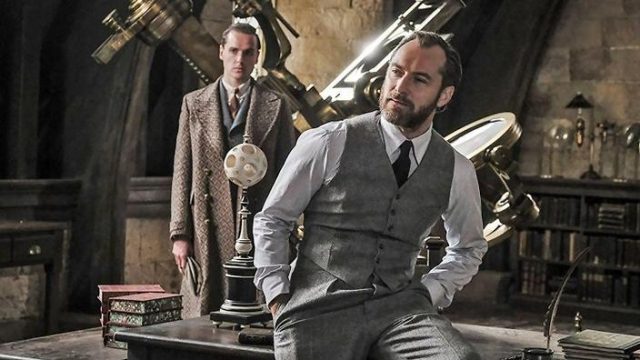
This is frustrating, since Rowling also single-handedly wrote the script for the previous Fantastic Beasts and Where to Find Them, and that movie functioned very well as a self-contained prequel/spin-off that made only small nods to certain personalities that would be recognizable to Harry Potter fans. That movie’s storyline ended very definitively for certain characters as well, namely Jacob and Credence, with the former losing all memory of the movie’s events, and the latter being outright killed off! This set up a sequel that could have rotated the cast a bit, and made room for some new personalities. Instead, Fantastic Beasts: The Crimes of Grindelwald immediately starts trying to have its cake and eat it too, by forcing very lazy, ridiculous excuses to retcon the conclusive ends to Jacob’s and Credence’s storylines from the previous movie, so that they can return for this sequel. Apparently, Credence just didn’t die after being literally disintegrated! How? Never explained (yes, there is a visible Obscurus fragment when Credence ‘dies’ in the first movie, but this still fails to explain how his ‘powers’ can reform him from a handful of molecules). The attempt to obliviate Jacob also just didn’t work for dubious reasons, because apparently the ‘Obliviate’ spell now only wipes negative memories. That revision is an even bigger doozy, since it even manages to open up plot holes in the original Harry Potter saga, namely with moments like Hermione successfully obliviating her own parents in Harry Potter and the Deathly Hallows!
This is just one issue that arises from trying harder to directly link the Fantastic Beasts movies with the Harry Potter movies, namely that these prequels now have to start revising heavily-established lore from the Harry Potter saga, which retroactively makes certain elements of the Harry Potter movies no longer make sense. That’s before considering the onslaught of overwrought exposition and world building that Fantastic Beasts: The Crimes of Grindelwald is constantly assaulting audiences with too! The movie is so jam-packed with setups and teases for future Fantastic Beasts sequels, as well as tie-ins to even some small details from the former Harry Potter movies, that it sometimes becomes difficult to follow even for avid Harry Potter fans, which means that non-fans of the Wizarding World are going to be hopelessly lost in this unregulated mess of a story dump! Not only is there way too many unnecessary story elements in this movie, but the impenetrable wave of exposition often slows the movie’s pacing to an absolute crawl, at which point even series fans will periodically feel their brains start rejecting the overflow of information, and zoning out of the movie, even temporarily.
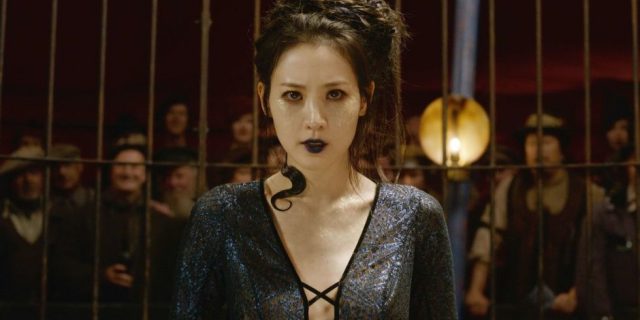
More than viewers needing to be very well-versed in Harry Potter lore to effectively get anything out of much of this sequel’s storyline, the biggest problem for non-fans who don’t care to learn every single element of canon from the Wizarding World especially (or possibly re-learn it), is that Fantastic Beasts: The Crimes of Grindelwald is ultimately a very boring movie in too many places. It’s overwrought, it’s slow, and its handful of really cool scenes don’t effectively compensate for the fact that the story just never really feels that exciting or focused. One would be hard-pressed to effectively explain exactly what the premise of Fantastic Beasts: The Crimes of Grindelwald even is! The villain, Grindelwald escapes the American Ministry of Magic (because of course he does), Newt and friends have to go after him, before Grindelwald can get to Credence for… Some reason. It’s a lot of dueling perspectives that all want one thing or another thing, and clearly none of it is going to be properly resolved, because we have three more movies to spread this storyline across. Once the Fantastic Beasts saga is complete, maybe this second offering’s incredibly dense plotting will become easier to swallow, but for now, this movie too often feels like it’s a waste of time, devoting most of its runtime to reminding the audience that they’ll just have to show up again for another movie if they want any actual answers to what’s going on.
David Yates returns to direct Fantastic Beasts: The Crimes of Grindelwald, having now helmed every movie in this universe since 2007’s Harry Potter and the Order of the Phoenix. Yates’ style has become very clearly established in the Wizarding World by this point, and as you can imagine, he effortlessly commands quite a few stunning highlight moments, even in a weaker sequel like this one. The displays of magic and sorcery remain as compelling as ever, with the same dark, yet intriguing atmosphere still hanging over all of the presentation, easily rooting Fantastic Beasts: The Crimes of Grindelwald in the same flavour as most of its recent predecessors especially. When this movie actually does manage to deliver an exciting moment as well, Yates continues to push his directing capabilities to new and exciting heights, creating unpredictable and larger-than-life displays of magical excitement that still continue to expand the frontiers of imagination and tension for the Wizarding World!
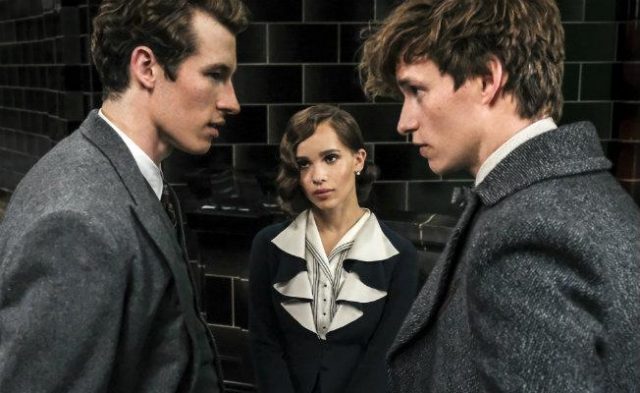
It’s frustrating however that for all of Yates’ directing inspiration in Fantastic Beasts: The Crimes of Grindelwald, he has to spend so much time desperately trying to engage with scenes that often play out in such a dull, plodding fashion. Yates does his best to play up some of the first Fantastic Beasts movie’s charming humour where he can, and he tries to place colourful or otherwise flashy spectacle wherever he can manage it, but he’s definitely hamstrung by the scattered, overstuffed script here. There are quite a few scenes where even Yates seems to just throw up his hands, doing away with the flash and the camera work, and just directly hanging on scenes of overwrought dialogue and exposition, because that’s all he can really work with. This leads to some of the direction feeling disappointingly uneven in some places, effortlessly dazzling audiences in some scenes, only to then lean into the boredom during others.
James Newton Howard once again returns to compose the score for Fantastic Beasts: The Crimes of Grindelwald, and as with the first movie, the music suite in this sequel is amazing! There are even more callbacks to some of the original Harry Potter movie compositions throughout Howard’s score here as well, which ties in nicely with this sequel generating many more nods and references to the events of the Harry Potter movies than its predecessor ultimately did. Even the all-new compositions in this sequel soar with potent atmosphere and unrelenting magical fury however, especially with some great new music tracks that are realized for scenarios relating to Grindelwald, and other all-new situations that begin to present themselves in Newt and co.’s sophomore adventure together.
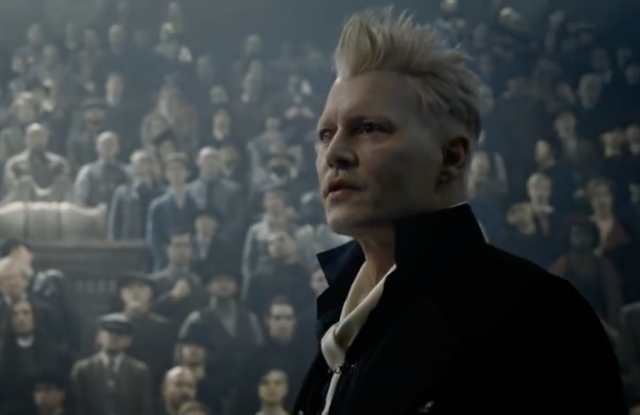
The audio design certainly doesn’t pull its punches either, particularly in IMAX theatres and other such premium formats, where the sheer deafening power behind every spell is truly felt throughout the experience! The highly pronounced audio design helps all of the spellcasting really pop when it unfolds on-screen, just as the majestic cries and roars of whatever ‘Fantastic Beasts’ actually do manage to show up in this sequel make an equally pronounced and awe-inspiring impression! There’s definitely less emphasis on the actual beasts this time around, despite the brand that these prequel movies are continuing to operate under, but every element of the Wizarding World nonetheless manages to feel alive and well-defined throughout this movie’s extraordinarily-realized audio mixing, easily immersing audiences into the frequent enchantments and sorcery that continue to await them in this compelling world.
It’s virtually redundant to say by the tenth Wizarding World movie that Warner Bros. has delivered to date, but Fantastic Beasts: The Crimes of Grindelwald, for all of its narrative shortcomings, at least looks as stunning as ever in terms of its special effects! The movie really hits the ground running with a spectacular mid-air magic-fueled escape for Grindelwald right from the opening minutes, setting the stage for a powerful and resourceful foe that’s as flashy as he is dangerous! There are definitely plenty of other scenes that flex the effects muscle of the Wizarding World quite nicely as well, moving between quite a few beautiful-looking settings that continue to play with the boundaries of imagination and whimsy. At its best, Fantastic Beasts: The Crimes of Grindelwald truly is dazzling, especially now that it’s once again able to run free in adult wizard society, and doesn’t have to settle for the lesser conjuring of teenagers at a school.
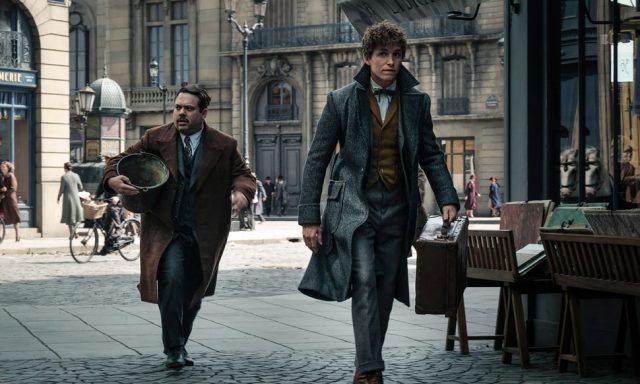
Regrettably, my IMAX screening of Fantastic Beasts: The Crimes of Grindelwald didn’t offer a 3D presentation, so I can’t comment on the potential of the 3D effects in this case. I can say however that the IMAX screen does help to at least bump up the scale of the settings and magical effects, even in 2D, creating an experience that really does feel especially grand and impressive in its presentation. It’s worth checking out Fantastic Beasts: The Crimes of Grindelwald in IMAX if you want to get the most out of the spectacular presentation and visuals, even though you may lose some of the added magical flourishes by sacrificing the 3D, on account of Warner Bros.’ current business plan of creating separate 3D and IMAX cuts for their high-profile blockbusters, and not providing hybrid IMAX 3D cuts like any other competing studio currently does. Even if you just watch a standard digital screening flat in 2D however, Fantastic Beasts: The Crimes of Grindelwald looks fantastic in every format, which will definitely make you wish that it had more genuine narrative excitement to back up the highly satisfying visual stimulation.
It’s truly heartbreaking to see Fantastic Beasts: The Crimes of Grindelwald so quickly collapse under its own weight, too often faltering and plodding due to its horrendous lack of focus and structure. This is an incredibly disjointed, messy sequel, to the point where even longtime Harry Potter fans, let alone non-fans who are just looking for a fun fantasy flick, may have a hard time making sense of this overwrought hodgepodge of scattered ideas, which seem only feebly strung together by their shared desire to keep endlessly expanding a shared movie universe that was supposed to have wrapped up its main storyline in 2011! Sure, Fantastic Beasts: The Crimes of Grindelwald is at least as well-produced as ever, since it’s still a stunning technical achievement in terms of its soundtrack and visuals, which continue to leap off of the screen with superb conviction and spellbinding power. Even then though, those technical achievements still amount to mere window dressing on top of what’s nevertheless an overly dense jumble of scattershot storytelling and characterization.
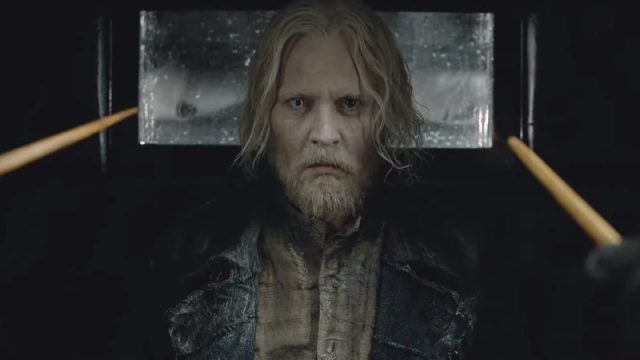
Every so often, there will be a standout scene in Fantastic Beasts: The Crimes of Grindelwald, one that is thrilling, imaginative and lots of fun to watch unfold. Those bright spots will remind you of the alluring appeal of the Wizarding World, which even a sequel that’s this disappointing doesn’t truly manage to destroy. Those bright spots will also continue to draw attention to the many storytelling failings of this sequel however, which often feels like a sluggish filler chapter that fails to truly stand out from the rest of this universe’s cinematic offerings. I still wouldn’t go as far as to say Fantastic Beasts: The Crimes of Grindelwald is bad, but it’s definitely not great, and it falls well short of its much more enjoyable predecessor. Hopefully Warner Bros. and J.K. Rowling can refocus and tighten the storyline in the next movie, because it’s definitely not a great look for a Wizarding World movie when the more light-hearted and jovial monster-collecting adventure ends up being more exciting than the all-important rise of a new dark wizard!

